Exploring Warlocks in Game of Thrones Lore
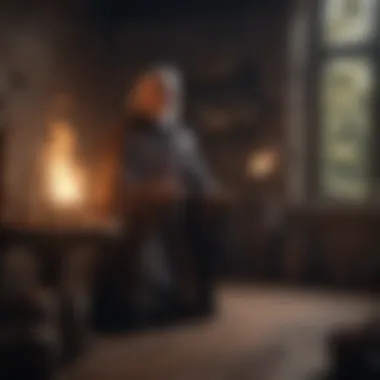
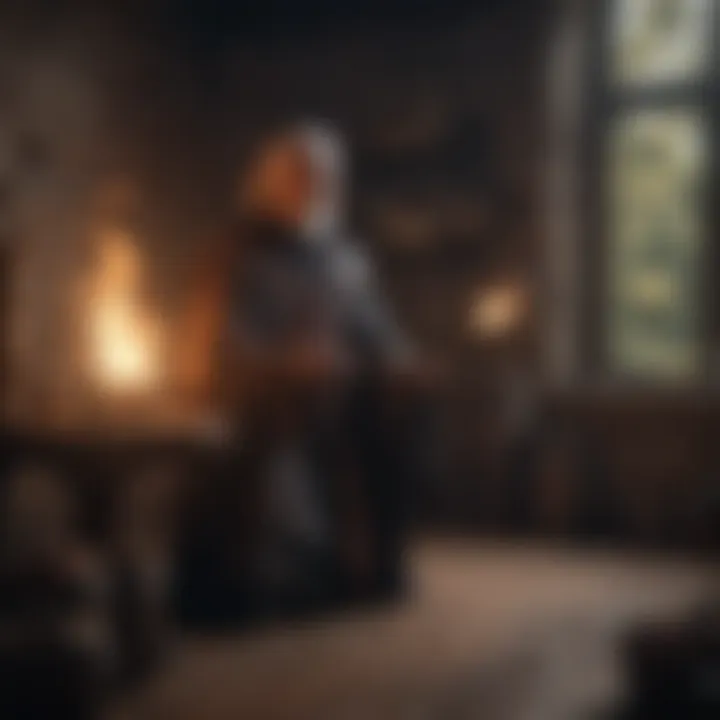
Intro
The world of Westeros is known for its intricate politics, betrayal, and, of course, its magical elements. Among these, warlocks play a vital role yet often remain shrouded in mystery. These figures embody various aspects of magic that can seem both alluring and terrifying. Unlike the more celebrated practitioners of sorcery, such as Melisandre or Daenerys Targaryen, warlocks have been depicted as figures of both reverence and fear throughout the series. This dynamic contributes to their complexity within the lore.
Warlocks have deep-seated historical roots that connect them to ancient traditions and mythologies, drawing on numerous cultural influences. Magic, particularly the darker specters of it, has always been a double-edged sword, reflecting both the desires and ethical dilemmas of its wielders. In this article, we will dissect the roles of warlocks, examining their character development, relationships, and impact on the overarching storyline of Game of Thrones.
Character Dissections
The Mysterious Warlocks
Warlocks, especially in Game of Thrones, often operate in obscurity. Their backgrounds and motivations can be elusive, making them seem almost otherworldly. Notably, the warlocks of Qarth are perhaps the most significant example of this enigma. They are often referenced by the exotic and at times sinister figure of the Warlock of Qarth, a character whose interests align with the darker aspects of magic. Their presence in the series often speaks volumes about the seductive allure of power and the price one has to pay for it.
Key Warlocks in the Series
- The Warlock of Qarth: This character represents the intersection of ambition and moral ambiguity. His motivations often leave viewers questioning the boundaries of loyalty and betrayal.
- Shadowbinders: These individuals showcase magical practices that blend shadow and flame. Their relevance to the plot often highlights how far characters will go to achieve their goals, illustrating a more extensive web of magical influence.
- The House of the Undying: This mysterious location acts as a focal point for several warlocks in the series. It’s emblematic of knowledge traded for power; a theme that echoes throughout the narrative.
Character Development and Impacts
The character arcs of various warlocks are as twisted as the spells they weave. For example, the Warlock of Qarth, through his interactions with Daenerys, brings forth crucial themes about ambition and the moral costs of power. Throughout their portrayal, warlocks oscillate between allies and adversaries, complicating the ethical landscape of Westeros.
By presenting complex characters rather than archetypal villains, the series offers a more nuanced view of power dynamics. Some warlocks even challenge the ideals of honor and tradition, positioning themselves as tragic figures in their own right.
"Magic is a strange and often dangerous friend; it can offer solace but it often demands a price."
Summary of Character Influence
- Warlocks often operate silently behind the scenes.
- The characters raise important themes about trade-offs and ethical dilemmas in magic.
- Their relationships with major characters reveal significant plot developments and turning points.
Next, we will turn our attention to how these warlocks fit into the broader lore of Westeros. Their history and mythologies can sometimes illuminate their complex roles in the series, making connections between magic and the overarching conflict that defines the world.
Understanding Warlocks: A Historical Perspective
The concept of warlocks carries a weighty significance, particularly in the lore of Game of Thrones. Warlocks are more than just magic-wielders; they embody a complex web of history, culture, and morality that intertwines with the very fabric of Westeros. This section aims to illuminate the multifaceted definitions, origins, and narratives surrounding these enigmatic figures, establishing a foundation for a deeper understanding of their role within both the story and its broader themes.
Definition of Warlock
A warlock, in its simplest form, is often seen as a practitioner of dark or forbidden magic. But, like many terms in fantasy, the definition varies across cultures and stories. In the Game of Thrones universe, warlocks are depicted as sorcerers who engage in activities that transcend ordinary magical practice, often dabbling in sinister rituals or dangerous spells. They wield powers that can manipulate the very elements of life—often serving their own ambitions rather than the greater good.
Etymology and Ancient Roots
The etymology of the word "warlock" can be traced back to Old English, where it denotes a male witch or sorcerer, possibly deriving from the term "wīcce" (meaning witch) combined with rhetoric suggesting betrayal—hinting at a dark connotation. Ancient roots of warlock figures can be found in folklore from various cultures, where they are often associated with ill omens or tragic fates. In texts long before Game of Thrones, these figures have always walked a fine line between power and peril.
Warlocks in Myth and Legend
Warlocks feature prominently in myths and legends across different societies.
- Celtic Lore: In certain tales, warlocks were known to harness nature's darker elements, calling storms or summoning spirits to do their bidding.
- Norse Mythology: Figures similar to warlocks often appear, known for their ability to manipulate fate and destiny, emphasizing the dichotomy of power wielded responsibly versus recklessly.
- Western European Folklore: They are frequently portrayed as capricious beings, both feared and envied, illustrating the complex relationship society has had with magic and its practitioners.
"True magic is a dance with chaos; those who lead often find themselves stepping on the toes of fate."
The historical context surrounding warlocks—and their portrayal—sets the stage for understanding their actions and motivations throughout the Game of Thrones saga. In a world that fears and reveres magic in equal measure, the warlock stands as a pivotal figure, embodying the often-blurred lines between heroism and villainy. By grasping this historical perspective, readers can appreciate the intricate layers of conflict and morality at play, making sense of the warlocks' relevance throughout the series.
The Role of Magic in Westeros
Magic in Westeros is not just a backdrop; it is a living, breathing entity that intermingles with the fate of its characters and kingdoms. It affects decisions, shapes destinies, and weaves itself through the very fabric of the world. Unlike mere science, magic here is entwined with the mystical, offering powers and consequences that often defy logic and reasoning. In the realm of Game of Thrones, the interplay of magic, particularly through figures like warlocks, provides a lens into deeper moral dilemmas, historical legacies, and the intrinsic nature of humanity itself.
A notable aspect of magic in this universe is how it interacts with the political landscape. Many battle strategies and shifts in power hinge on magical elements. For instance, Daenerys Targaryen, through her dragons, brings a revolutionary change in warfare, imbuing her military endeavors with an almost supernatural essence. But with such power comes intricate responsibilities, creating a complex tapestry where magic serves as a tool, a weapon, and sometimes, a curse.
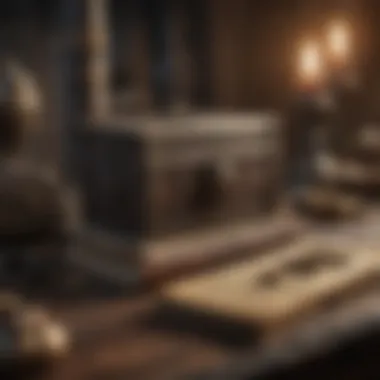
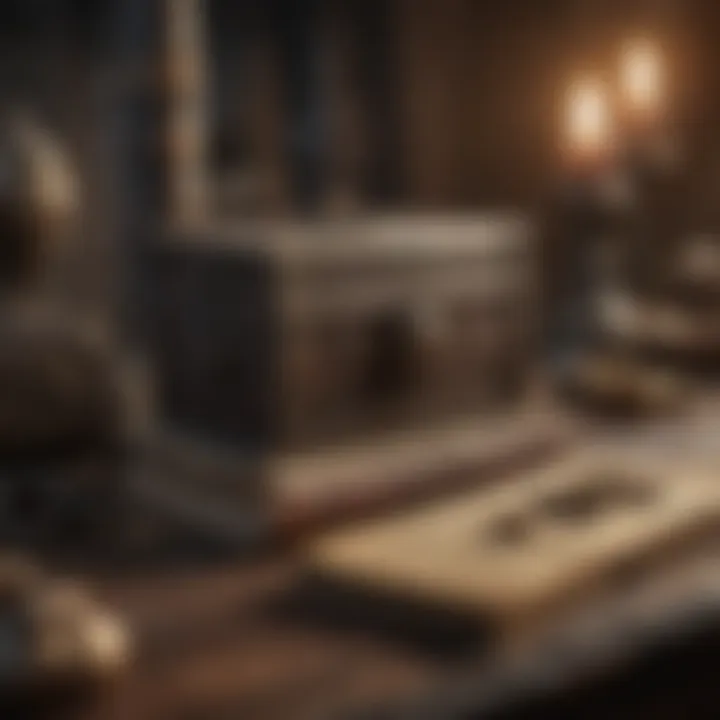
Types of Magic
When discussing the types of magic, it helps to categorize them to understand their implications:
- Elemental Magic: This is often showcased through the manipulation of natural forces, such as fire and ice. Dragons, wielded by Daenerys, embody fire magic predominantly, while the enigmatic White Walkers introduce another dimension with their control over ice.
- Necromancy: This dark art reanimates the dead and raises eerie questions about the sanctity of life. Characters like Beric Dondarrion, resurrected through the intervention of the Red God, illustrate how necromancy intertwines spirituality and morality.
- Prophetic Magic: Present in the visions experienced by characters like Bran Stark, prophetic magic serves as a warning or guidance, often revealing hidden truths or impending doom. It acts as a narrative device that challenges the characters' decision-making with the burden of foreknowledge.
- Sorcery and Alchemy: Warlocks like those from Qarth use sorcery to manipulate reality and people's perceptions, blending elements of traditional magic with archaic knowledge, further complicating the moral landscape.
The Nature of Warlock Magic
The nature of warlock magic is deeply enigmatic and exceptionally potent. Warlocks often embody the age-old pursuit of knowledge and power, transcending boundaries that many dare not cross. In Game of Thrones, their magic isn't just flashy spells; it’s a web of ancient rituals and whispered secrets. For example, the House of the Undying distinguishes itself with a philosophy that intertwines wisdom and insanity, where visions can lure the unprepared into madness. Their power hinges on items, deaths of others, or even the manipulation of the environment itself.
Warlocks often remain shrouded in mystery, their motives obscured. One potent example is Qotho, who serves as a gatekeeper to the deeper mysteries inherent in their magic. Characters in the series frequently wander into their realms seeking power, only to find themselves ensnared in riddles and moral quandaries.
Magic vs. Science in the Realm
This leads to an intriguing contrast: magic vs science in Westeros. The tension between these two elements echoes throughout the lore. While traditional scientific principles often come from logic and empirical evidence, magic diverges into realms of uncertainty. It raises the question of how characters choose to wield such powers. For instance, while Maesters rely on knowledge and rational methods in the Citadel, figures like Melisandre or Jaqen H'ghar exemplify an opposite approach, where faith and magic dictate their paths.
The implications of this clash also surface during critical plot points. When rationality falters, magic steps in, oftentimes leading to transformative or disastrous results. The Battle of Winterfell, for example, illustrates how the combination of strategy and magic can determine the very fate of kingdoms.
In summary, magic's role in Westeros is profound and multifaceted. Through the lens of warlocks and their practices, we observe the fine line between power and responsibility, the moral dilemmas faced by characters, and the influence of mystical forces on the vast political landscape. With every incantation, there comes a lesson, reminding us that within the allure of magic lies the shadow of its consequences.
Notable Warlocks in Game of Thrones
The portrayal of warlocks in Game of Thrones is both fascinating and essential to the series' overarching narrative. These enigmatic figures represent the ambiguous nature of magic in Westeros, serving both as agents of power and cautionary tales of its consequences. Readers gain a deeper understanding of how warlocks shape events and influence characters, while simultaneously diving into a rich lore that stretches beyond mere sorcery.
Warlocks operate not just on the fringes with their craft but also interweave within the political fabric of the realm. By examining their roles, we illuminate the impact of their decisions on the worlds they inhabit. This section specifically highlights three notable warlocks, allowing us to see how they embody the themes of magic, morality, and mortality.
The Warlock of Qarth
Nestled within the vibrant city of Qarth, the warlock becomes an essential figure for Daenerys Targaryen. His name, the Warlock of Qarth, practically drips with mystery; he represents the allure of seeking knowledge that may come at a significant cost. Known for his abode in the House of the Undying, he proves both an alluring mentor as well as a menacing foe.
His magical practices are not mere theatrics; they intertwine with events that challenge Daenerys’s motivations and desires. For instance, his volatile visions hint at the price of her power. Instead of being just an assistant to her quest, he shapes her understanding of power, and in the process, reflects the dark allure of ambition. No supernatural trickery happens in isolation. Instead, it ripples through the tapestry of her story, posing questions about the cost of ambition and the boundaries of human understanding.
Mirri Maz Duur: A Case Study
Mirri Maz Duur represents a complex blend of tragedy and horror. As a healer with a deep-seated understanding of magic, she initially offers to help Khal Drogo, but the consequences of her actions ripple far beyond her intentions. Her character sheds light on the ethical dimensions surrounding magic use in Westeros—distinguishing healing from manipulation.
In her case, the use of magic encompasses a dark duality. On one side, it highlights her desperation to save the Khal, but the other is rooted in revenge. Her spell does not come without dire consequences, leading to Drogo’s transformation, which brings unimaginable suffering, not just for him, but for Daenerys, who is left shattered. As a case study, Mirri Maz Duur’s actions stir the pot of the moral implications behind the use of power. What suffices as an act of compassion may pivot into a horrifying tale of vengeance.
The Followers of the Red God
A distinct faction within the warlock landscape is represented by the Followers of the Red God. This group of devoted practitioners presents an exploration of faith blended intricately with magic, showcasing an intriguing blend of fervor and dread. They harness the power of R'hllor, often employing fire as a central theme in their prophesying.
One notable figure among them is Melisandre. Her convictions are as fiery as the flames she manipulates. To her, magic becomes a manifestation of faith and destiny, rather than grim manipulation seen in other practices. She sees visions that influence her allegiance and decisions, such as when she decides to support Stannis Baratheon in his claim to the Iron Throne.
However, their use of magic raises important questions about free will. Characters within the realm, such as Jon Snow, are often swept into their grand visions, grappling with the collision between fate and choice. This intimacy with the arcane can blur moral lines, making the exploration of the Followers of the Red God compelling as they weave magic into a divine narrative.
"Magic, in the hands of the warlocks, is both a weapon and a vulnerability, carrying an inherent need for respect that most often goes unheeded in pursuit of power."
Warlock Organizations and Cults
The notion of warlock organizations and cults in Game of Thrones unveils a fascinating layer of depth to the lore that permeates Westeros. These factions aren’t just groups huddled in the shadows; they shape the politics, magic, and often the very fate of characters in the realm. By examining these organizations, we can appreciate how they act as conduits of warlock magic and how they interact with the broader themes of power and morality.
The House of the Undying
Perhaps the most recognized warlock society is The House of the Undying, nestled within the city of Qarth. It’s a place riddled with secrets and cloaked in mystery. The Undying Ones, an assembly of warlocks, wield their power in ways that often remain obscure to outsiders. This organization is known for its capacity to traverse the boundaries between life and death.
Inside this cryptic establishment, Daenerys Targaryen encounters visions that highlight crucial aspects of her past, present, and possible futures. Yet, the price for truth is steep; the undying are known to consume the very essence of those who dare enter, though they seem immortal themselves. This offers an eerie commentary on the consumption of power and knowledge, suggesting that the quest for enlightenment can be perilous.
"In the House of the Undying, those who seek knowledge may find themselves paying with their soul."
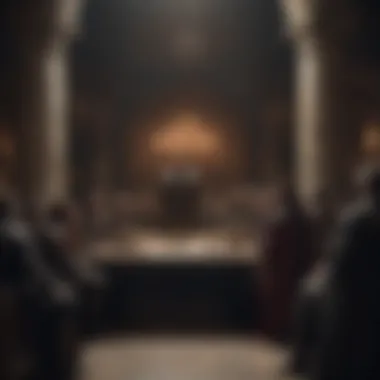
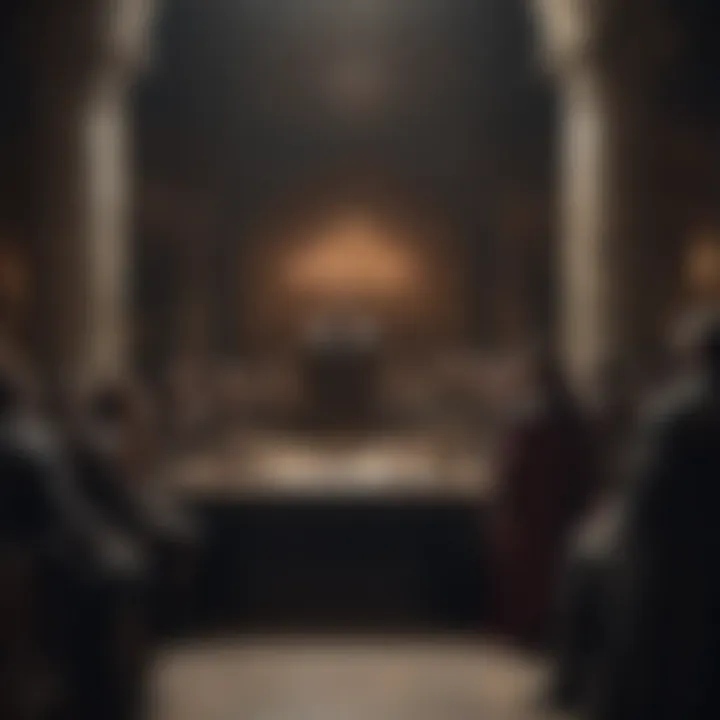
The Brotherhood Without Banners
Moving from the dark halls of Qarth to the chaotic battlegrounds of Westeros, we find The Brotherhood Without Banners. This group is not primarily centered around warlocks, but its alignment with mystical elements is quite evident. Led by the enigmatic Beric Dondarrion, who is often resurrected with the help of the Lord of Light, the Brotherhood showcases the duality of magic and morality.
Their role is essential in the conflicted landscape of Westeros. They don’t merely focus on mundane battles; they fight for a cause, guided by a sense of honor though it sometimes wavers. The Brotherhood represents a form of collective empowerment, suggesting that the use of warlock magic can be both a tool and a weapon. The implications of their actions provoke questions: Does the ends justify the means? How far should one go to achieve a righteous cause?
Secret Societies: Influence and Power
Beyond the known factions lie myriad secret societies that often manipulate events from the shadows, whispering in the ears of kings and commoners alike. These organizations, while not always labeled as warlock cults, often harbor individuals proficient in the magical arts. Sometimes they target specific goals, such as gaining power or preserving traditions, climaxing in a volatile mix of political intrigue and arcane influence.
This notion evokes an important thread in the tapestry of Westerosi lore: the extent to which such societies can stratify society. Consider how organizations like the Faceless Men operate. They possess knowledge of the unseen and the power over life and death, raising questions about their ethical stance.
- Can power concentrated in secretive groups lead to tyranny?
- How do beliefs shape these organizations and influence their members?
By exploring these facets of warlock organizations, readers gain insight not just into the societies themselves but the broader, ethical landscape of magic in Westeros. These nuances foster deeper engagement with the lore and provoke thought about how power, influence, and responsibility intertwine within these shadowy communities.
The Ethical Implications of Warlock Magic
The topic of the ethical implications of warlock magic is both complex and significant in the Game of Thrones universe. As bearer of arcane powers, warlocks often operate in a moral grey area, utilizing their abilities for personal gain or, at times, for what they perceive as a greater good. This ambiguity raises questions about morality, consequence, and responsibility that resonate throughout the narratives involving these mystical figures. While their magic can be a double-edged sword, the impact of its use highlights broader themes regarding power, ethics, and the choices individuals make when challenged by the allure of such capabilities.
Morality in the Use of Magic
When discussing the morality of warlock magic, one can hardly ignore its intrinsic link to manipulation and control. In the hands of a warlock, magic serves not merely as a tool, but as a weapon capable of bending reality to their will. This potential for control presents numerous ethical dilemmas. Consider the actions of Mirri Maz Duur, whose application of magic stems from deeply ingrained beliefs about life and death. She raises questions about whether her actions are justified when the lives of others hang in the balance.
A notable quote comes to mind, "With great power comes great responsibility." This can certainly be applied to our warlocks. As they wield their influential abilities, their decisions will inevitably carry weight and consequence not just for themselves, but for entire kingdoms. Therefore, the ethical framework governing their actions becomes essential in understanding their role within the lore.
Consequences of Warlock Actions
Every spell cast and every potion brewed conjures a range of consequences. The story of the House of the Undying illustrates this vividly. The warlocks residing there often engaged in experiments and power plays that led not only to personal gain but also suffering for those around them. The aftermath of their magic is rarely inked in bright colors; instead, it is steeped in shadows, laying waste to the lives entangled within their schemes.
The consequences one might think,
- Diminished lives: Those who fall victim to the whims of warlocks may find their fates sealed in ways they never expected.
- Moral decay: The pursuit of power can corrode one’s sense of right and wrong.
- Innocent victims: Often, it is not the warlocks who pay the price for their misdeeds, but the bystanders, caught unaware in the crossfire.
Thus, the ripple effect of their actions continues to resonate, posing deeper questions about accountability and the inherent right to wield such power.
The Dilemma of Power vs. Responsibility
Lastly, the perpetual struggle between power and responsibility cannot be overlooked. Warlocks embody this dilemma, frequently torn between their thirst for power and the responsibilities that accompany it. This juxtaposition frames their every move, creating tension that drives their motivations and conflicts.
In many instances, the allure of greater power becomes too tempting. Take, for instance, the followers of the Red God. Their devotion often leads them to justify heinous acts in the name of a perceived higher purpose. This brings forth the difficult question: when does seeking power compromise one's ethics and values?
"To wield power is to tread a fine line. The question remains, who watches the watchers?"
Ultimately, the ethical implications of warlock magic in the Game of Thrones universe remind us that all power carries responsibility. The repercussions of their magical decisions are far-reaching, affecting not just personal destinies, but the very fabric of Westeros itself.
Warlocks in Literature and Pop Culture
Warlocks have often been depicted in various narratives across literature and popular culture, symbolizing a unique blend of mystical power and moral ambiguity. Within the framework of this article, it is crucial to explore how these representations in literature and pop culture shape our understanding of warlocks in Game of Thrones. This insight not only solidifies their role within the story but also reflects broader cultural considerations of magic, power, and ethics.
Literary Origins of the Warlock Archetype
Before we can fully grasp the tapestry of warlocks in the realm of Game of Thrones, we must delve into their literary origins. Historically, literature has utilized the warlock motif to illustrate a complex relationship with magic often tinged with betrayal and secrecy.
Their archetype traces back to ancient texts, where they were portrayed as sorcerers or witches, often serving darker powers. A prominent early narrative is found in Macbeth by Shakespeare, where the character of Hecate, though not a warlock in the traditional sense, encapsulates some attributes — manipulation, foretelling the future, and wielding dark enchantments. This foundation sets the stage for modern interpretations, which have evolved significantly.
In modern fantasy literature, authors like J.K. Rowling and J.R.R. Tolkien have embraced the warlock image, albeit with variations in portrayal and purpose. Rowling's Severus Snape, with his layered character and ambiguous morality, echoes the unpredictable nature of classic warlocks, demonstrating how authors can elevate theses figures beyond mere villains or misfits. Comparatively, Tolkien’s wizards, although more akin to benevolent figures, still encompass certain warlock traits, such as profound knowledge of magic and the responsibility that comes with it. These reflections pave the way for understanding the more complex characters within Game of Thrones.
Comparative Analysis: Warlocks in Other Series
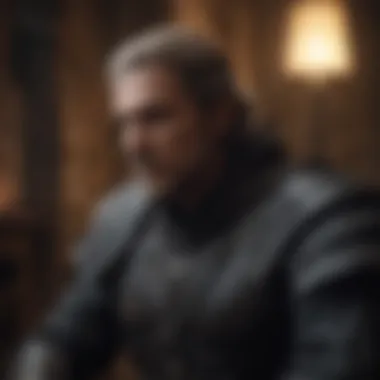
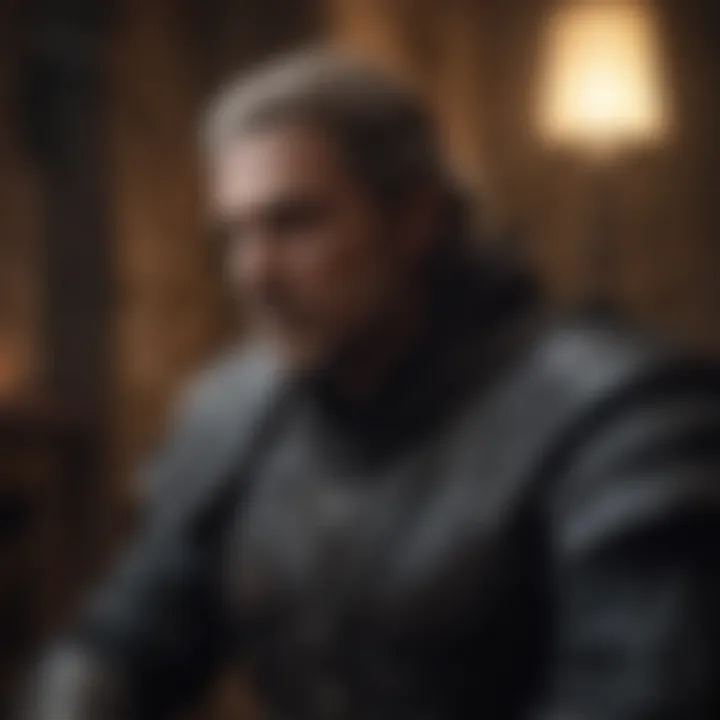
Analyzing the role of warlocks in other literary narratives reveals striking similarities and contrasts. For instance, consider how magic-users are depicted in the The Witcher series. The character of Yennefer, although not a traditional warlock, mirrors some core themes — the dual nature of magic as a source of empowerment and a double-edged sword leading to her own trials.
In contrast, HBO's adaptation of American Horror Story offers a more sinister view of witches and warlocks. The coven in that narrative plays heavily on themes of power dynamics, often exploring darker aspects of the mystical arts. Both series emphasize the often perilous balance between magic and its potential consequences, a narrative thread also woven throughout Game of Thrones.
By comparing these various portrayals, we see a recurring theme: warlocks are as much products of their societies as they are practitioners of magic. The lens through which their stories are told often reflects the moral and ethical debates surrounding power and responsibility.
Cultural Perceptions of Warlocks
Cultural perceptions of warlocks in society typically oscillate between admiration and fear. This dichotomy stems from the historical associations of warlocks with dark arts and forbidden knowledge. In Game of Thrones, we observe this tension played out through characters like the Warlock of Qarth, whose practices evoke both curiosity and repulsion.
In many cultures, the archetype of the warlock often signifies a rebellion against societal norms, where they channel unfinished business or personal vendettas through magic. Notably, the public's fascination with figures like Merlin and Gandalf often coexists with wariness towards those who delve into black magic. Popular shows have further propagated this perception, crafting a narrative where warlocks operate outside conventional boundaries, forcing audiences to reconcile their capabilities with the potential ramifications of their actions.
In summary, the warlock figure stretches beyond the realm of Game of Thrones, resonating with audiences through its historical and cultural significance. By understanding their place in literature and pop culture, readers can appreciate the multifaceted nature of these characters, both within and outside the world of Westeros.
Fan Theories and Interpretations
In the realm of Game of Thrones, where every detail and character can spark intense discussions, fan theories surrounding warlocks offer a fascinating insight into how viewers engage with the lore. These interpretations serve not just to entertain, but also to expand the narrative, providing depth to elements that might otherwise be overlooked. By exploring fan theories, we discover the intricate ways in which audiences analyze the text, filling gaps between the explicit and the implied. This section aims to highlight the significance of these creative explorations while shedding light on the broader implications for the story.
Exploring Fan Theories on Warlocks
The notion of fan theories regarding warlocks in Game of Thrones is not just a whimsical pastime; it encourages deeper examinations of the source material. From speculations about the House of the Undying to potential links between various warlock figures and the broader magical hierarchy, enthusiasts weave together narratives that challenge the conventional understanding of magic in Westeros.
For instance, some fans posit that the warlocks in Qarth symbolize the intersection of power and fear, hinting that their abilities are not merely mystical but also political. Another theory suggests that Mirri Maz Duur represents a tragic reinterpretation of warlock stereotypes, showcasing the duality of their capabilities—to heal or to harm—as a reflection of their moral choices. These theories not only enrich our appreciation of the characters but also showcase the creativity inherent in fandom.
The Influence of Fandom on Lore Development
Fandom plays a critical role in shaping the lore of Game of Thrones. The vibrant community surrounding the series fosters an environment where shared interpretations can lead to new insights. Online forums, such as Reddit and dedicated Facebook groups, become hotbeds for discussions, where fans dissect and challenge existing narratives, effectively creating a living, breathing text that evolves over time.
Through collaborative conjecture, fandom can influence the creators themselves. Writers and producers may tune into these discussions, taking cues from popular theories or fan-favorite interpretations that resonate with the audience. In this way, the dialogue between fans and creators is reciprocal; fandom doesn’t just react to the story, it actively participates in its development.
Future of Warlocks in Continuing Narratives
As Game of Thrones moves forward, the future of warlocks holds much potential for fresh story arcs. While the original series concluded, the expanded universe, including prequels and spin-offs, provides fertile ground for exploring these characters. Questions surrounding the legacy of warlocks, their impact on the unfolding narratives, and how they are perceived in various settings remain open.
Fans speculate about the possibility of returning to the mysterious lands of Qarth or delving deeper into the machinations of the House of the Undying. The future can unveil more intricate explorations of warlock societies, possibly blending myth with historical contexts, which could pose moral dilemmas akin to those faced by characters in Game of Thrones. As new stories unfold, the enigmatic nature of warlocks will likely continue to captivate and engage audiences, ensuring their relevance for years to come.
Ending: The Lasting Impact of Warlocks in Westeros
The exploration of warlocks in Game of Thrones highlights more than just magical abilities or eccentric characters; it unveils the intricate web of influence these figures wield in the broader landscape of Westeros. Their presence, woven throughout the narrative, affects not just the characters' journeys but also the very fabric of the world they inhabit.
Warlocks serve as reflections of humanity’s thirst for power, knowledge, and, often, the moral dilemmas that accompany such pursuits. They embody the struggle between ambition and morality, oftentimes leading characters down paths that entangle them in unforeseen consequences. For instance, the Warlock of Qarth, with his mysterious and manipulative tendencies, raises questions about the price of knowledge and the true nature of alliances.
In considering warlocks, it’s vital to recognize their role as catalysts in the plot. They prompt changes and stir conflicts, pushing characters, like Daenerys Targaryen and even Melisandre, to confront their beliefs and choices. This creates ripples that affect not just the protagonists but also the fate of the realm itself.
Their portrayal also invites viewers and readers to examine the nature of magic. It’s not just a tool but a double-edged sword, which can bring salvation or devastation. As asymmetrical power dynamics unfold, warlocks intricately thread the balance between helplessness and danger with the allure of their abilities, making their influence last well beyond their on-screen appearances.
"Magic, in Westeros, serves as a reflection of the greatest hopes and darkest fears of its people."
To sum up, warlocks in Game of Thrones do more than conjure spells or appear in shadowy corners. Their legacy is one of complexity and depth, prompting critical reflections on the impact of magic, the struggles of power, and the ethical ramifications of their actions. They will continue to resonate with audiences, informing discussions about morality and power in fiction and beyond.
Recapitulating Key Themes
As one looks back over the significant aspects that have been discussed regarding warlocks, it's clear that a few key themes emerge prominently:
- Power and Responsibility: The wrestle with power often leads to grave consequences. Warlocks shape destinies but also suffer from the repercussions of their actions, embodying the age-old adage that with great power comes great responsibility.
- Ethics of Magic: The morality surrounding the deployment of their magical skills prompts important discourse. Are warlocks justified in their actions, or do they cross moral boundaries? This question hangs over their legacies, particularly in cases like Mirri Maz Duur.
- Cultural Reflection: Warlocks embody societal fears and desires. Through them, the narrative critiques the human pursuit of power and the lengths individuals will go to achieve their ambitions.
The Future of Warlock Characters
Considering the characters of warlocks moving forward, the future seems ripe with potential. The lore surrounding Game of Thrones continues to evolve, with spin-offs like House of the Dragon promising to revisit such arcane figures. The depths of a warlock's power could be explored in new narratives, shedding light on various aspects of magic that have yet to be fully addressed.
The return of familiar faces, or perhaps the emergence of new warlocks, could lead viewers to reevaluate their understanding of magic and its effects in a world already fraught with conflict. Such explorations could draw parallels to current societal issues surrounding power dynamics and responsibilities.
Final Thoughts on Warlock Influence
In closing, warlocks in Game of Thrones provide a fascinating glimpse into human nature, ambition, and the complex interplay of magic in storytelling. Their role transcends mere catalysts of conflict; they invite deeper reflection on personal choices and societal ethics. As the narrative landscape shifts with new developments, the future will undoubtedly keep warlocks at its core, ensuring their influence persists, shaping entendres of power, magic, and morality for both fans and characters alike.



